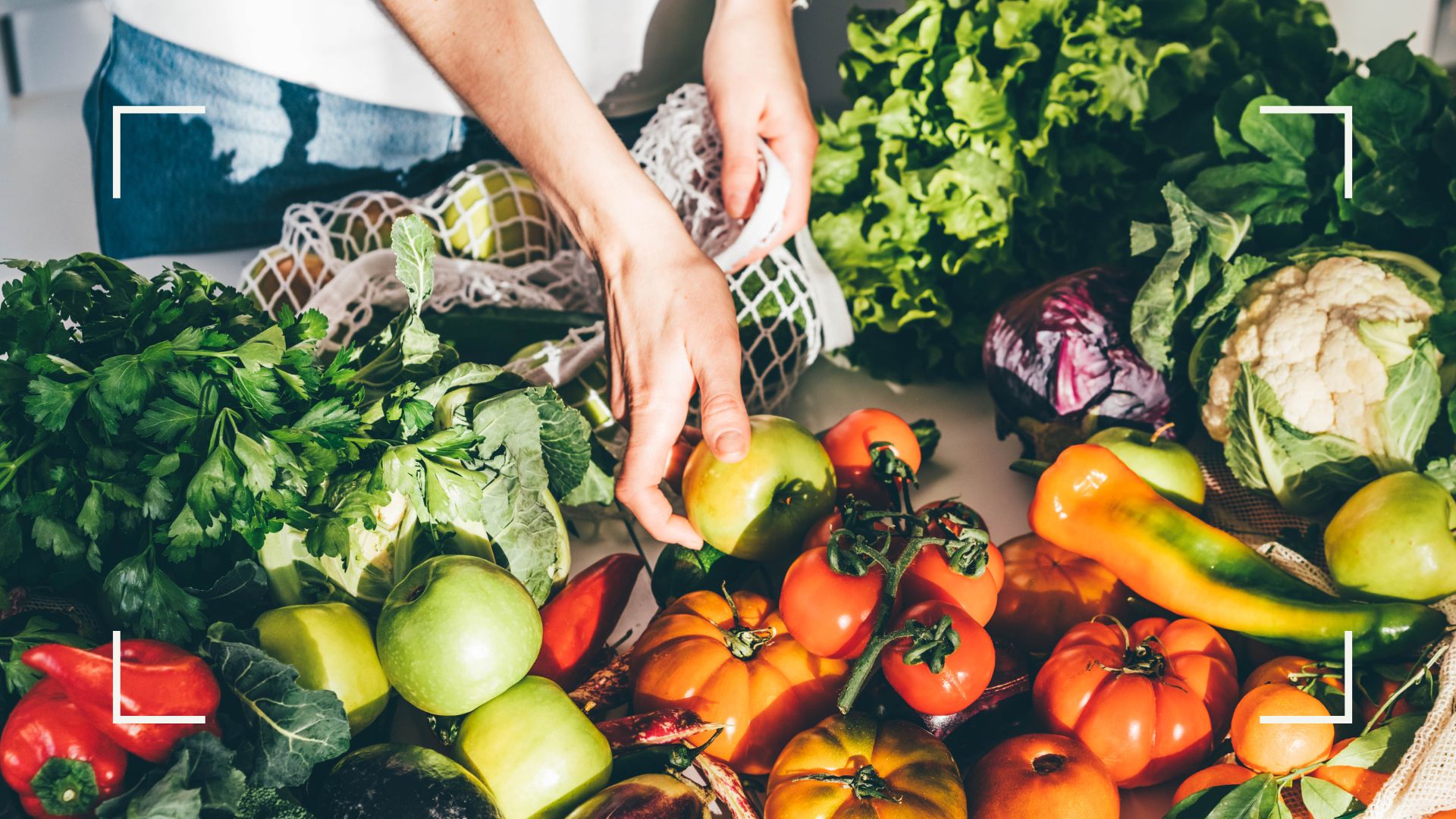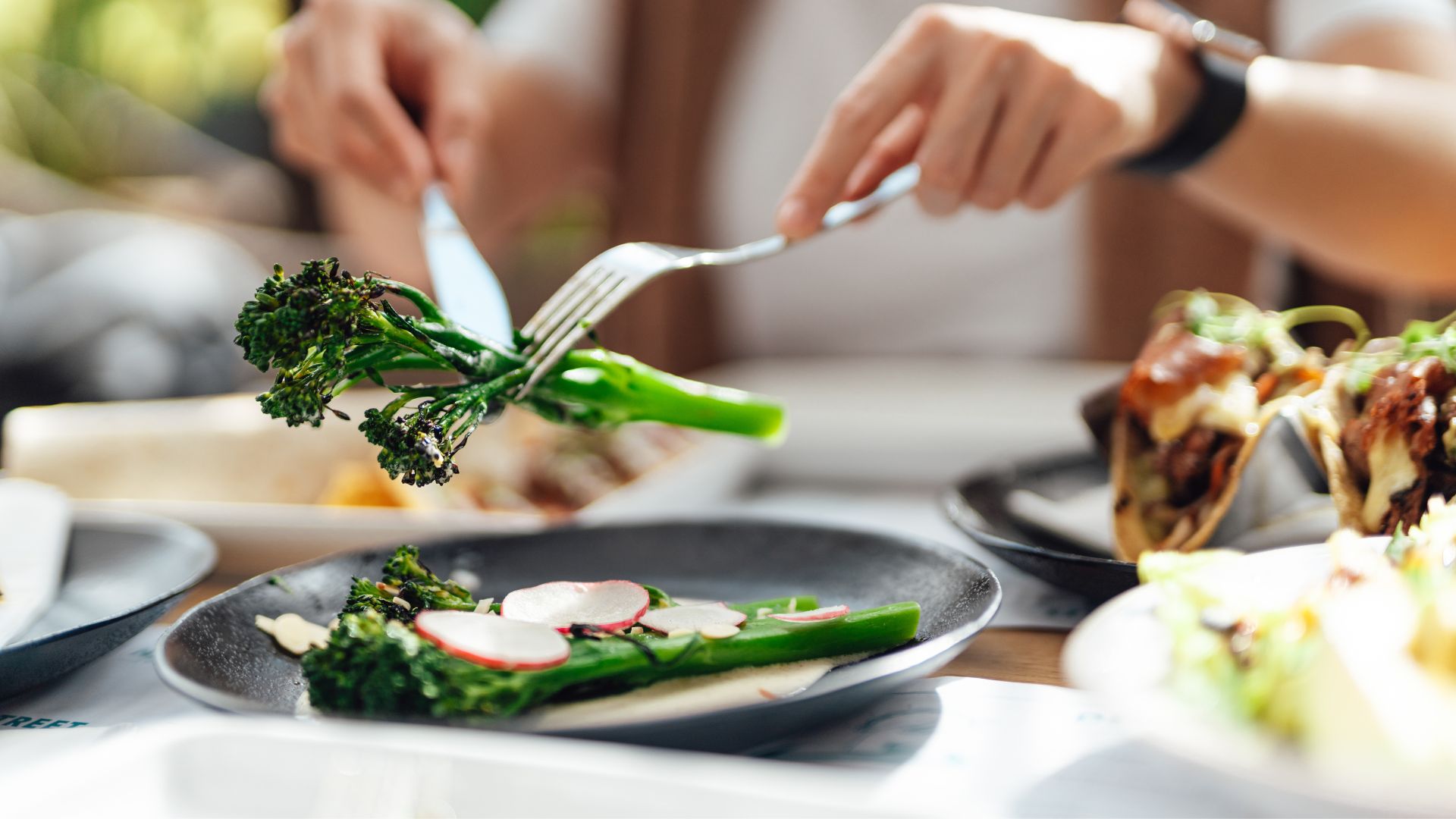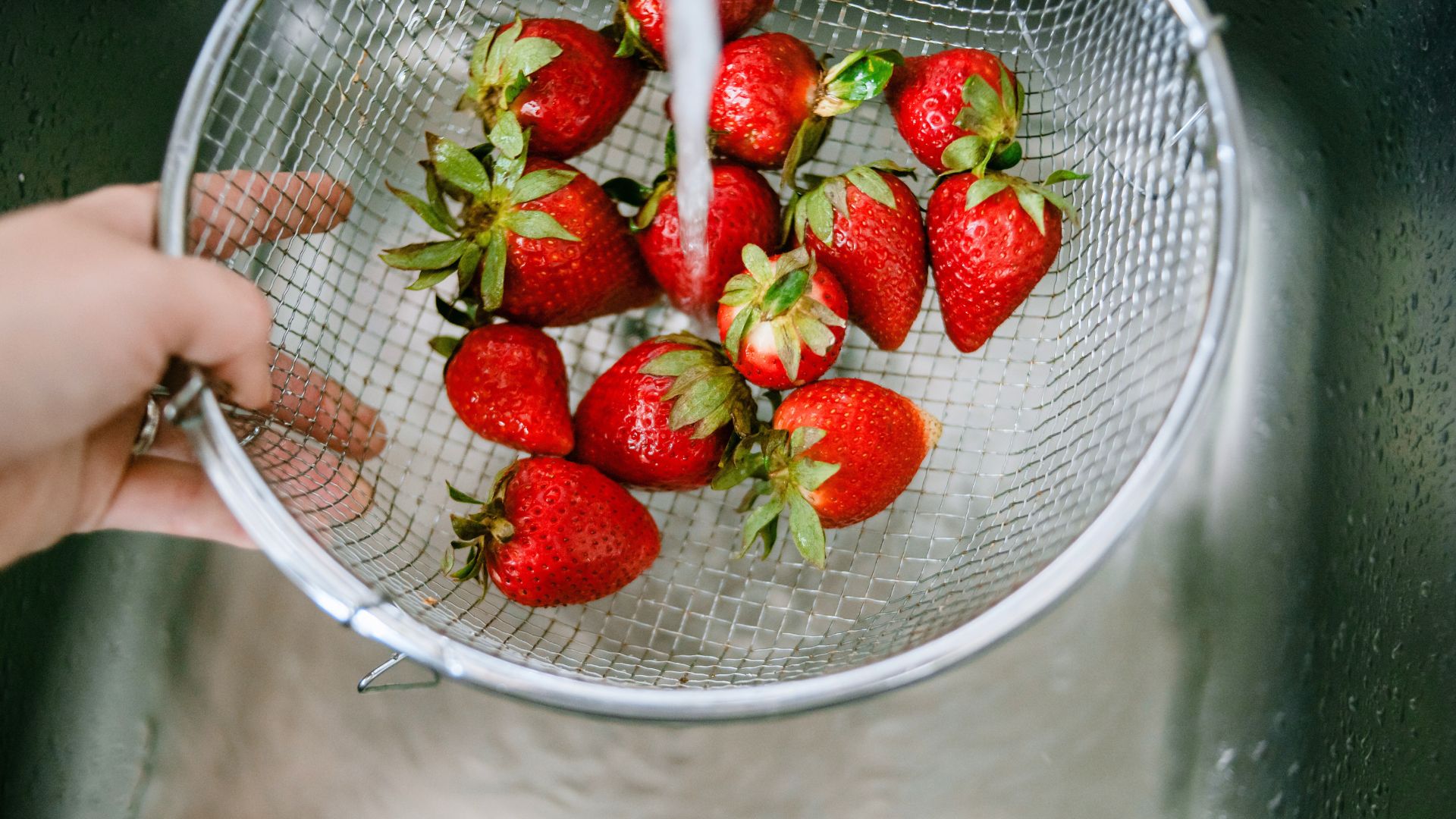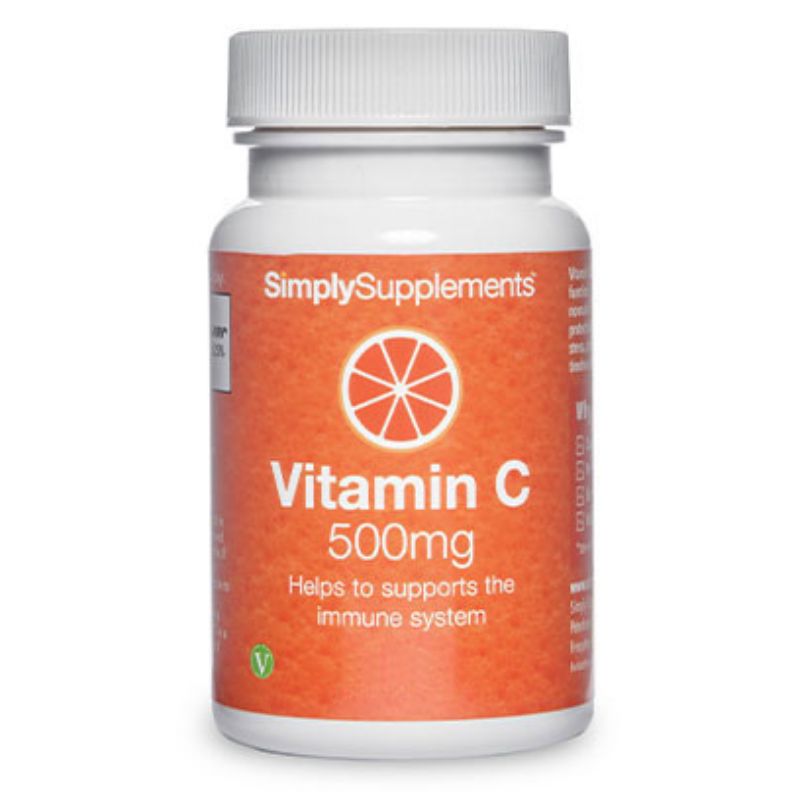
It's natural to turn to oranges and citrus fruits when looking for foods high in vitamin C but there are actually many more that contain the same amount, if not more, of this vital vitamin.
Colds and flu can often strike us down when we least expect it in winter, so it can be a good idea to protect ourselves as early as possible. Increasing the intake of vitamin C does just that as the nutrient helps to keep our immune system running as it should. If you're eager to continue experiencing the benefits of exercise in winter, spend a lot of time outdoors, or are looking to get ahead and learn how to combat SAD, it's certainly something to consider.
The average orange contains about 82 mg of vitamin C, but other foods (mainly fruits and vegetables) offer the same or even more. Adding more of these foods high in vitamin C is a great way to boost your levels as they're easily found, affordable to buy, and they tend to be delicious staples of many meals.
A rotation of these foods is also important though as we don't use the vitamin in the same way as others like vitamin D. As nutritionist Xuxa Milrose, from OMNI Wellness, explains: "Our body cannot store sufficient amounts of the vitamin for long periods, so we need to make sure we are getting a consistent daily dose of it through food." So, which foods should you prioritise?
Foods high in vitamin C
1. Brocolli
Broccoli is a great way of getting vitamin C into your diet with around 90mg per 100g, that's 10mg more than the average orange. NHS doctor Dr Adam Sayedi, who is also the co-founder of health brand Herb+, recommends steaming the vegetable in the microwave as this ensures the highest vitamin C concentration when you're eating it.
If you're looking to boost the power of broccoli even more then, Dr Sayedi explains that adding mustard seed extract to the veggie will boost the absorption of sulforaphane, which is an anti-inflammatory compound found in broccoli. So, another great benefit of this veggie is that it's also one of the high-fibre foods that reduce stress as well.

2. Bell Peppers
Another superhero vegetable is bell peppers. Also known as capsicum, these veggies have a huge vitamin C offering with yellow peppers being the highest source (183 mg per 100g when boiled), followed by red (171mg per 100g) then green (74mg per 100g)
"A medium-sized yellow pepper contains over 180mg of Vitamin C, over four times the daily recommended intake," explains Dr Sayedi.
But there's no need to worry about having too much vitamin C in our systems, he adds, as our body naturally excretes any excess when we go to the toilet.
3. Kale
Whether you're a kale fanatic or not, there's no denying the numerous benefits this leafy green has for us with 93 mg per 100g. That's 13mg more than the standard orange, making them one of the best foods high in vitamin C.
It's also great for looking after your gut health in winter for the same reason and as kale is high in vital vitamin K, it can also help to improve your bone health.
4. Strawberries
There isn't much not to love about strawberries - not only are they one of the best superfoods for weight loss but they're also a great source of vitamin C, with 98mg of vitamin C per cup, a standard serving.
"Strawberries are rich in vitamin C and are also high in fibre and antioxidants. Antioxidants help neutralise free radicals, thereby protecting cells from oxidative stress and damage," explains nutritionist and health coach Lara Buckle.
And if that wasn't enough to get you smiling this winter, another benefit of strawberries is that they're a natural aphrodisiac, so they're a great food for boosting your libido.

5. Cauliflower
Much like broccoli, cauliflower is an essential to have in your fridge this winter. 265g of cauliflower, which is about the weight of one small head, offers almost 128mg of vitamin C.
It also doesn't matter how you prepare cauliflower. No matter whether you roast it, steam it, mash it, or put it in the air fryer, you can enjoy all the benefits of this nutrient-dense, versatile vegetable.
6. Brussels sprouts
Love them or loathe them, brussels sprouts have more vitamin C than oranges at 85mg per 100g. With such a small serving of sprouts offering a good amount of vitamin C, they're certainly superfoods when it comes to protecting our health in winter and helping us get more fibre in our diet.
What's more, as well as being one of the foods high in vitamin C, these little green veggies are chock full of antioxidants. Sprouts contain choline, which according to Dr Sayedi is essential for our memory, mood and muscle control. "The nutrient choline also helps protect our brains from Alzheimer's disease, reducing levels of homocysteine, a neurotoxin indicted in dementia," he says.
7. Kiwi
With 92.7mg of vitamin C per 100g, this fibrous green fruit is another great alternative to oranges for boosting vitamin C levels. Although perhaps that's not too surprising as much like oranges, kiwi is a citrus fruit.
It offers plenty of other benefits too though as it contains anti-inflammatory properties that can help ward off serious diseases like cancer and diabetes, per research by Lovely Professional University in Phagwara, India.
Beware though, when turned into a juice, kiwi can become one of the foods that cause bloating as the high sugar levels and acidity pair with lower fibre levels, making it harder to digest.
How can I increase my vitamin C levels quickly?
- Smoothies: According to Andy Daly, a nutritional therapist at Dr David Jack's clinic, smoothies with vitamin C-rich fruits and vegetables are an effective way to rapidly increase your vitamin C levels. Adding strawberries, kale and orange juice to your daily smoothie is a surefire way of topping up your intake. If you're looking to learn how to wake up early in the morning in winter, having a vitamin C-rich smoothie may also help as it's a digestible meal first thing.
- Go raw: With most of the aforementioned fruits and veggies, eating them raw is certainly an option and can be done in smoothie form too. Daly explains, "Consuming vitamin C-rich foods in their raw state as snacks (except for tomatoes), can help boost vitamin C levels as they retain more vitamin C when consumed in their natural state."
- Avoid mixing with calcium: If you want to get some vitamin C in your system quickly then it's best to avoid consuming it alongside calcium-rich foods. Daly explains this is because they will interfere with vitamin C absorption, so it's best to keep them separate.
- Pair it with vitamin E: Unlike calcium, vitamin E can complement the absorption of vitamin C explains Daly. So when eating foods rich in vitamin C it can be a good idea to pair them with almonds or sunflower seeds as they're rich in vitamin E and will give you an added boost.

Benefits of vitamin C
- Vitamin C supports the immune system: There's a reason we need this vitamin so much through the winter months and that is because of the way it looks after our immune systems, which are often under threat during the cold season. Nutritionist Sophie Trotman says, "Vitamin C helps in the production of white blood cells, which are key to fighting infections."
- It's an antioxidant: Having antioxidants in our diets is incredibly important, Trotman explains that they help to protect cells from the damage caused by free radicals which can lead to chronic diseases.
- Vitamin C can help synthesise collagen: It's not just external benefits that vitamin C brings, the nutrient is vital for the synthesis of collagen. Trotman says, "Collagen is a protein that helps keep skin firm and healthy. It also aids in wound healing. So, vitamin C is great for skin health too."
- It helps with iron absorption: Vitamin C improves the absorption of iron, says Trotman, which is why eating the foods mentioned alongside a source of plant-based protein. Eating foods rich in vitamin C is particularly important for those on a plant-based diet because of this reason.
If you're still wanting to find a quick and efficient way to get your daily vitamin C intake then supplements are also a great option. While aiming to get your vitamin C intake naturally through foods is preferable, especially in winter, supplements are a guaranteed way of hitting that daily mark or even topping up your levels alongside those leafy greens and potatoes.

If you're looking for a quick way to up your vitamin C intake then these 500mg capsules are your answer. They're suitable for vegans and are GMP approved.

These chewable tablets are extra strength, with 1000mg it's sure to give you the boost you need during the winter months.

If tablets aren't your thing then these dissolvable ones are a great alternative. Each fizzy tablet provides 1000mg of vitamin C and gives off a refreshing orange taste.







